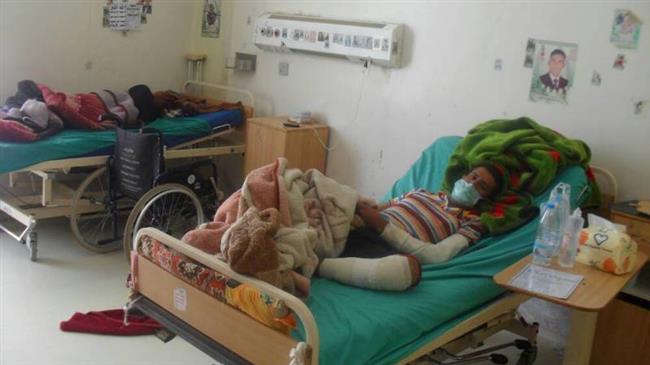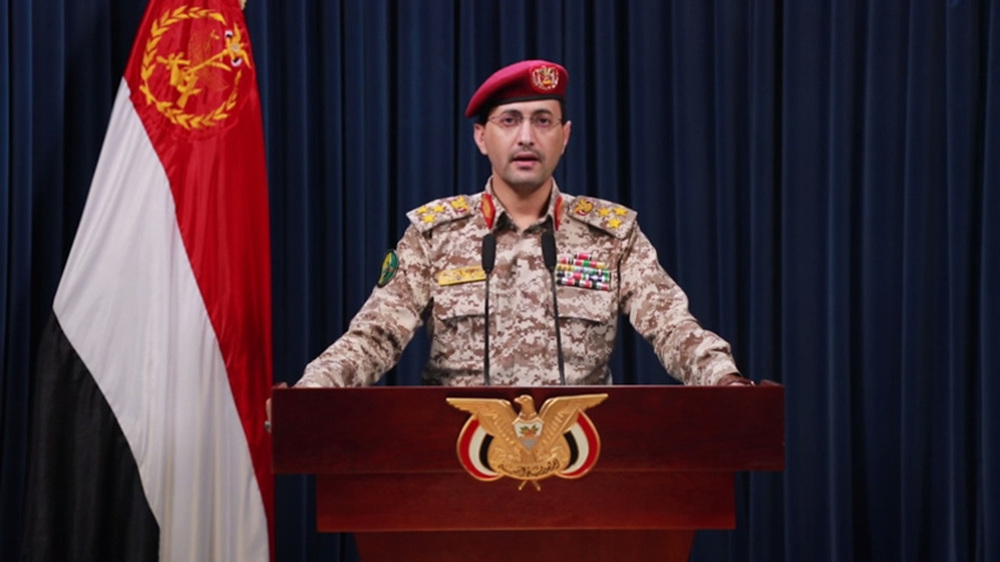Norwegian aid group says medicine cannot reach Yemenis
An international aid group says it has not been able to deliver medical and humanitarian assistance to the people in the Yemeni capital, Sana’a, due to Riyadh's ongoing war in the country.
Becky Bakr Abdullah, an official with the Norwegian Refugee Council (NRC) in Yemen, told Press TV in an email that the ongoing Saudi-led military campaign has made it difficult for humanitarian groups, including NRC, to reach out to displaced people in need.
"We experience restrictions on our movements and the ongoing violence makes it difficult to provide lifesaving assistance. While trying to assist other Yemenis in need, our staff on the ground are deeply concerned about their own families and friends", Bakr Abdullah said.
She said that the Saudi-led war continues to affect civilians in Yemen in the worst possible way.
"Attacks on civilians are on the rise and the ongoing conflict, economic deterioration and collapse of public services and infrastructure have left over 22 million Yemenis in need of aid and protection", she said.
The NRC official also said that “thousands of Yemenis are left with no safe means of transport outside the country as a result of the [Saudi] airport blockade. Equally, many civilians are prevented from traveling safely by road due to fighting, heightened prices or restrictions on movement".
Bakr Abdullah said "civilians no longer have the opportunity to seek medical help outside of Yemen" due to the blockade, which costs the lives of many. She called for the immediate reopening of “all channels of domestic and international air and road movement” so that "Yemenis in need can get help, and help can reach them."

Yousef al-Hadhery, the spokesman for the Yemeni Ministry of Health, told Press TV on Wednesday that Yemeni hospitals are currently experiencing a serious drug shortage and civilians are deprived of necessary medical supplies as a result of the siege. He said most drugs are expensive and the patients cannot afford their medications.
Al-Hadhery explained that the ongoing closure of Sana'a International Airport has a devastating impact on the arrival of medications to 13 provinces that is under the control of Yemen’s Supreme Political Council (SPC), a coalition between the Houthi Ansarullah movement and former President Ali Abdullah Saleh’s General People’s Congress party.
He said that "only two countries, Oman and Iran," have received the wounded since the attacks on Badr and al-Hashosh mosques in Sana'a during Friday prayers on March 20, 2015. The blasts killed 142 people and wounded more than 351 others.
Abdullatef Hosein Abu Taleb, the director of the al-Thawra hospital in Sana'a, said that the dialysis center of the medical center is in dire need of medical supplies.
"We are in dire needs for spare parts for maintenance operations of the dialysis devices", he said.
On Tuesday, Yemen’s Health Ministry called on the United Nations and the UN Security Council to do their duty to help lift the blockade and dispatch life-saving medical supplies to Yemeni patients and those wounded in the Saudi-led airstrikes and to transfer all those in need of treatment abroad urgently.
Speaking at the press conference held at al-Thawra hospital in Sana'a, Minister of Public Health Ministry and Population, Taha al Mutwakel, called for the opening of Sana'a International Airport, which has been closed for about two years, in order for the survivors of the Saudi-led airstrikes to travel abroad for treatment.

Saudi Arabia invaded the Arab world’s poorest nation in 2015 to return a former regime to power. The kingdom has also imposed an all-out blockade on Yemen which according to the UN is now the scene of the world’s worst man-made crisis.
On Tuesday, a UN report said the high rate of civilian casualties in aerial assaults by Saudi Arabia and its allies on Yemen “may amount to war crimes.”
The report which was released by the Group of International and Regional Eminent Experts on Yemen raised “serious concerns about the targeting process applied by the [Saudi-led] coalition.”
The UN Refugees Agency said on Tuesday that more than 450 civilians were killed in Yemen in the first nine days of August because of the conflict in the country.
“According to the Civil Impact Monitoring Report, over 450 civilians have lost their lives in Yemen in the first nine days of August alone, making it one of the deadliest periods since the start of the conflict in March 2015,” UNHCR spokesperson William Spindler told reporters in Geneva.
Some 15,000 Yemenis have been killed and thousands more injured since the onset of the Saudi-led aggression.
‘All wars have rules. All of those rules have been broken’ by Israel
VIDEO | Report flags India’s violation of rights of Rohingya detainees
Turkey's foreign minister meets Syria's de facto leader in Damascus
'Next to impossible' to rescue patients from Gaza's Kamal Adwan Hospital: Director
VIDEO | Vietnam current prosperity
Report blames gasoil exports for shortage at Iranian power plants
VIDEO | Hind Rajab Foundation names Israeli war criminals vacationing after Gaza genocide
VIDEO | Australians rally for Gaza ahead of Christmas festivities











 This makes it easy to access the Press TV website
This makes it easy to access the Press TV website